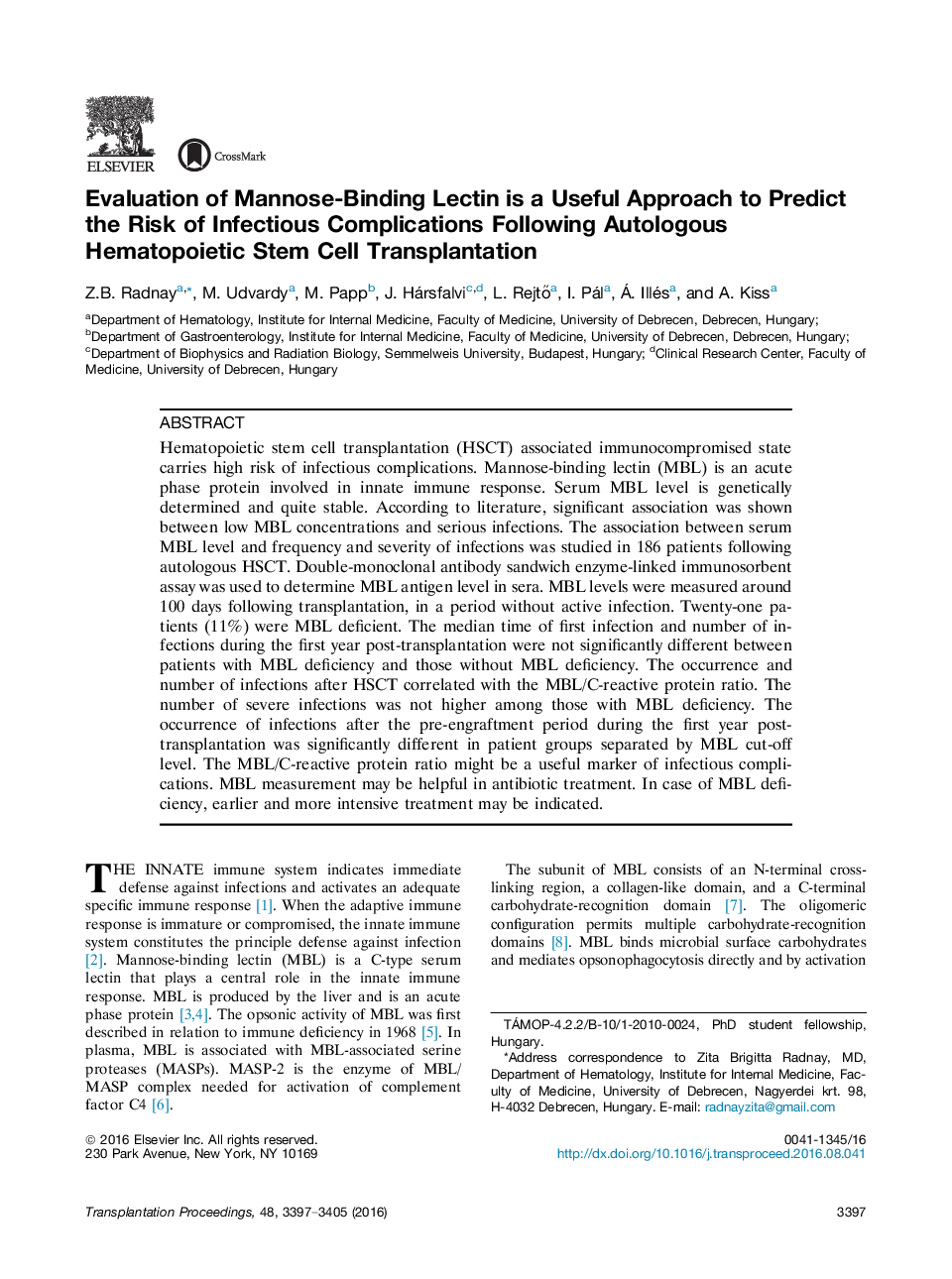| Article ID | Journal | Published Year | Pages | File Type |
|---|---|---|---|---|
| 5729102 | Transplantation Proceedings | 2016 | 9 Pages |
â¢An immuncompromised state carries high risk of infectious complications.â¢The time of first infection and number of infections during the first post-transplantation year were not significantly different between mannose-binding lectin (MBL) deficiency and non-MBL deficiency.â¢The occurrence and number of infections after hematopoietic stem cell transplantation correlated with MBL/C-reactive protein ratio.â¢The occurrence of infections after pre-engraftment period in the first post-transplantation year were significantly different in groups separated by MBL cut-off level.â¢The MBL/C-reactive protein ratio might be a useful marker of infectious complications.
Hematopoietic stem cell transplantation (HSCT) associated immunocompromised state carries high risk of infectious complications. Mannose-binding lectin (MBL) is an acute phase protein involved in innate immune response. Serum MBL level is genetically determined and quite stable. According to literature, significant association was shown between low MBL concentrations and serious infections. The association between serum MBL level and frequency and severity of infections was studied in 186 patients following autologous HSCT. Double-monoclonal antibody sandwich enzyme-linked immunosorbent assay was used to determine MBL antigen level in sera. MBL levels were measured around 100 days following transplantation, in a period without active infection. Twenty-one patients (11%) were MBL deficient. The median time of first infection and number of infections during the first year post-transplantation were not significantly different between patients with MBL deficiency and those without MBL deficiency. The occurrence and number of infections after HSCT correlated with the MBL/C-reactive protein ratio. The number of severe infections was not higher among those with MBL deficiency. The occurrence of infections after the pre-engraftment period during the first year post-transplantation was significantly different in patient groups separated by MBL cut-off level. The MBL/C-reactive protein ratio might be a useful marker of infectious complications. MBL measurement may be helpful in antibiotic treatment. In case of MBL deficiency, earlier and more intensive treatment may be indicated.
